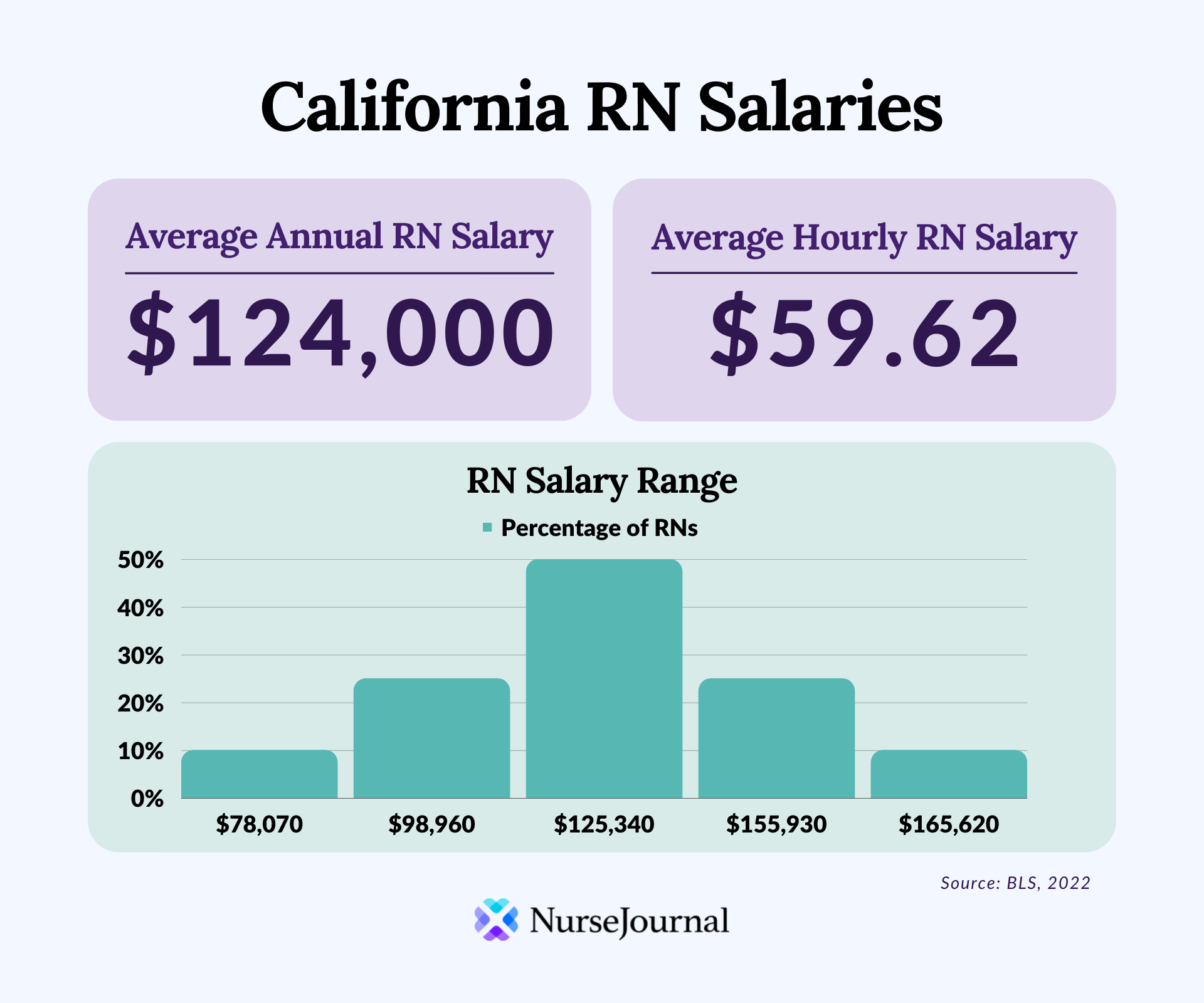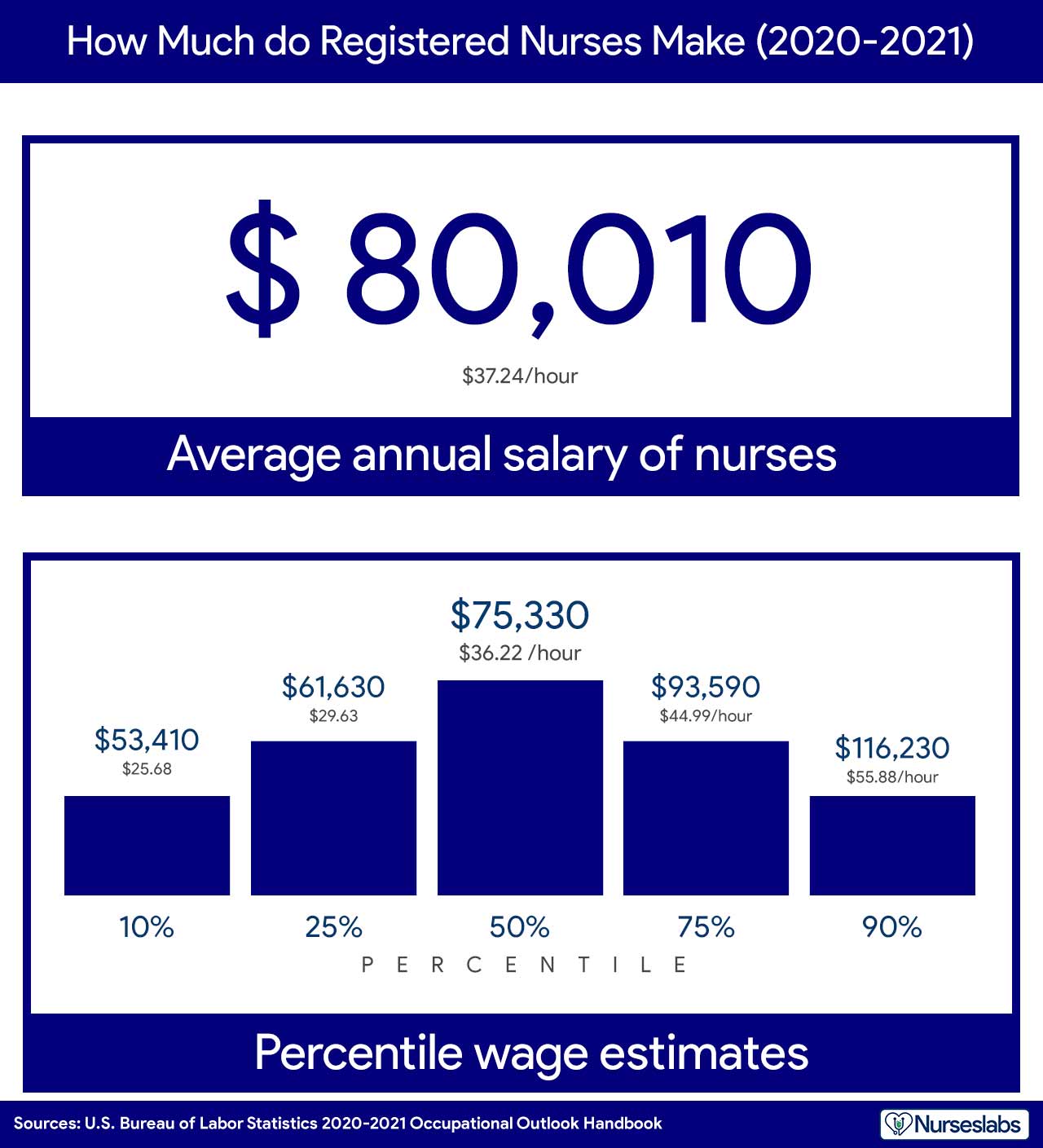Nurse Salary: The Real Deal On What Nurses Earn And Why It Matters
Ever wondered how much nurses really make? Well, buckle up, because we’re diving deep into the world of nurse salary. Nurses are the backbone of our healthcare system, and their work is nothing short of heroic. Yet, when it comes to compensation, there’s a lot more to the story than just numbers on a paycheck. From entry-level positions to specialized roles, nurse salaries vary wildly depending on factors like location, experience, and specialization. Let’s break it down!
Now, before we get into the nitty-gritty, let’s face it: nurses are some of the hardest-working people out there. They juggle long shifts, emotional stress, and the responsibility of caring for patients’ lives. And yet, the question remains—do they get paid what they deserve? Spoiler alert: it depends. Some nurses are raking it in, while others are struggling to make ends meet. So, what’s the deal?
In this article, we’ll explore everything you need to know about nurse salaries. We’ll cover the basics, like average pay and factors that influence earnings, and we’ll even touch on how to negotiate for better pay. Whether you’re a nurse, considering a career in nursing, or just curious about the numbers, this is the ultimate guide to nurse salary. Let’s get started!
Table of Contents
- What’s the Average Nurse Salary?
- Factors Affecting Nurse Salary
- Specialized Roles and Their Pay
- How Location Impacts Nurse Salary
- The Role of Education and Experience
- Beyond Salary: Benefits and Perks
- Job Outlook for Nurses
- Tips for Negotiating Nurse Salary
- Common Misconceptions About Nurse Salary
- Final Thoughts: Is It Worth It?
What’s the Average Nurse Salary?
Alright, let’s cut to the chase. According to the latest data from the Bureau of Labor Statistics (BLS), the median annual wage for registered nurses (RNs) in the U.S. was $77,600 as of May 2021. That’s not too shabby, right? But hold on—this number is just the average. Some nurses earn significantly more, while others earn less. It all depends on where you work, what you do, and how long you’ve been in the field.
For licensed practical nurses (LPNs) or licensed vocational nurses (LVNs), the numbers are a bit lower. The median annual wage for LPNs/LVNs is around $48,820. Again, this is just the median, so your actual salary could be higher or lower depending on various factors.
Now, here’s the kicker: nurse salary isn’t just about the base pay. Many nurses also receive overtime pay, shift differentials, and bonuses, which can add up to a pretty sweet package. So, while the average numbers give us a good starting point, they don’t tell the whole story.
Factors Affecting Nurse Salary
So, what exactly determines how much a nurse gets paid? Let’s break it down into a few key factors:
1. Level of Education
It’s no surprise that education plays a big role in nurse salary. Nurses with advanced degrees, like nurse practitioners (NPs) or certified registered nurse anesthetists (CRNAs), tend to earn more than those with just a basic nursing degree. In fact, CRNAs are among the highest-paid nurses, with an average annual salary of over $180,000.
2. Experience
Experience matters—big time. Entry-level nurses might start at a lower salary, but as they gain more experience, their earning potential increases. Many hospitals and healthcare facilities offer salary increases based on years of service, so sticking around can pay off in the long run.
3. Specialization
Not all nurses are created equal—at least not when it comes to salary. Nurses who specialize in areas like critical care, neonatal care, or oncology tend to earn more than those in general nursing. Why? Because these roles require specialized skills and knowledge, which makes them more valuable.
4. Location
Where you work can have a huge impact on your salary. Nurses in big cities like New York, Los Angeles, or San Francisco tend to earn more than those in rural areas. Why? Because the cost of living is higher in these areas, and hospitals need to offer competitive salaries to attract top talent.
Specialized Roles and Their Pay
Let’s talk about some of the highest-paying nursing roles out there. These aren’t your average RN jobs—we’re talking about specialized positions that require extra training and expertise. Here are a few examples:
- Certified Registered Nurse Anesthetist (CRNA): Average salary of $181,040
- Nurse Practitioner (NP): Average salary of $111,840
- Clinical Nurse Specialist (CNS): Average salary of $95,000
- Nurse Midwife: Average salary of $112,830
- Oncology Nurse: Average salary of $85,000
As you can see, specializing in a particular area can lead to some serious earning potential. But remember, these roles usually require additional education and certifications, so they’re not for everyone.
How Location Impacts Nurse Salary
Location, location, location—it’s not just a real estate thing. When it comes to nurse salary, where you work can make a huge difference. For example, nurses in states like California, Hawaii, and New York tend to earn more than those in states like Mississippi or Alabama. Why? Because the demand for nurses is higher in certain areas, and hospitals need to offer competitive salaries to attract qualified candidates.
But it’s not just about the state you live in. Even within a state, salaries can vary widely depending on the city or region. For instance, a nurse in San Francisco might earn significantly more than a nurse in a smaller town in the same state. So, if you’re looking to maximize your earning potential, it might be worth considering a move to a high-demand area.
The Role of Education and Experience
We’ve already touched on how education and experience affect nurse salary, but let’s dive a little deeper. Nurses with bachelor’s degrees (BSN) tend to earn more than those with associate’s degrees (ADN), and nurses with master’s degrees (MSN) or doctoral degrees (DNP) can command even higher salaries.
Experience is another big factor. Entry-level nurses might start at a lower salary, but as they gain more experience, their earning potential increases. Many hospitals and healthcare facilities offer salary increases based on years of service, so sticking around can pay off in the long run.
But here’s the thing: education and experience aren’t just about the money. They also open up opportunities for career advancement. Nurses with advanced degrees and years of experience are often eligible for leadership roles, like nurse manager or director of nursing, which come with higher salaries and more responsibilities.
Beyond Salary: Benefits and Perks
When it comes to nurse salary, it’s not just about the base pay. Many nurses also receive a host of benefits and perks that can add up to a pretty sweet package. Here are a few examples:
- Overtime pay: Many nurses work long shifts, and overtime pay can significantly boost their earnings.
- Shift differentials: Nurses who work nights, weekends, or holidays often receive extra pay, known as shift differentials.
- Bonuses: Some hospitals offer bonuses for meeting certain performance goals or for working during peak times.
- Health insurance: Most employers offer health insurance as part of the benefits package, which can save nurses thousands of dollars a year.
- Retirement plans: Many hospitals offer retirement plans, like 401(k)s or pension plans, which can help nurses save for the future.
So, while the base salary is important, don’t forget to factor in these additional benefits when evaluating a job offer.
Job Outlook for Nurses
Here’s some good news: the job outlook for nurses is looking pretty bright. According to the BLS, employment of registered nurses is projected to grow 9% from 2020 to 2030, much faster than the average for all occupations. Why? Because the aging population is driving up demand for healthcare services, and nurses are at the forefront of providing that care.
But it’s not just about the numbers. The demand for nurses is also being driven by advances in medical technology, changes in healthcare policy, and the growing need for preventive care. All of these factors are creating new opportunities for nurses in a variety of settings, from hospitals and clinics to home health care and telemedicine.
Tips for Negotiating Nurse Salary
So, you’ve landed a job offer—now what? If you want to make sure you’re getting paid what you’re worth, it’s important to negotiate your salary. Here are a few tips to help you get the best deal:
- Do your research: Before you start negotiating, make sure you know the average salary for your position in your area. Use websites like Glassdoor or Payscale to get an idea of what others are earning.
- Highlight your skills: Make a list of your skills, experience, and achievements, and be prepared to explain why you deserve a higher salary.
- Be confident: Negotiating can be intimidating, but remember—you’re worth it! Speak clearly and confidently, and don’t be afraid to ask for what you want.
- Consider the whole package: Don’t just focus on the base salary. Think about the benefits, perks, and opportunities for advancement that come with the job.
Remember, negotiating is a two-way street. The goal is to find a mutually beneficial agreement that works for both you and the employer.
Common Misconceptions About Nurse Salary
There are a lot of myths and misconceptions out there about nurse salary. Let’s bust a few of them:
- Myth #1: All nurses earn the same salary. Wrong! As we’ve seen, nurse salaries vary widely depending on factors like education, experience, and location.
- Myth #2: Nurses don’t get paid enough for what they do. While it’s true that some nurses struggle to make ends meet, many others earn competitive salaries that reflect the value of their work.
- Myth #3: Nurse salary is the only thing that matters. Nope! While salary is important, it’s not the only factor to consider when evaluating a job. Benefits, work-life balance, and opportunities for growth are also key considerations.
So, the next time you hear someone spreading these myths, you’ll know better!
Final Thoughts: Is It Worth It?
At the end of the day, the question remains—does the nurse salary reflect the value of the work they do? For many nurses, the answer is a resounding yes. Despite the long hours and emotional toll, nursing is a rewarding career that offers opportunities for growth, advancement, and making a real difference in people’s lives.
But here’s the thing: if you’re considering a career in nursing, it’s important to do your research and understand the factors that affect nurse salary. From education and experience to location and specialization, there are a lot of variables to consider. And don’t forget to factor in the benefits, perks, and opportunities for advancement that come with the job.
So, is it worth it? For many nurses, the answer is a resounding yes. But ultimately, the decision is yours. Whether you’re a nurse, considering a career in nursing, or just curious about the numbers, we hope this article has given you a better understanding of the world of nurse salary. And hey, if you found this article helpful, why not share it with a friend or leave a comment? Let’s keep the conversation going!
![Nurse Salary How Much Do Registered Nurses Earn? [2022] Nurseslabs](https://nurseslabs.com/wp-content/uploads/2022/06/Nurse-Salary-Compared-2021vs2022.jpg)
Nurse Salary How Much Do Registered Nurses Earn? [2022] Nurseslabs

Kaiser Registered Nurse Salary

Nurse Salary 2021 How Much Do Registered Nurses Make? Nurseslabs